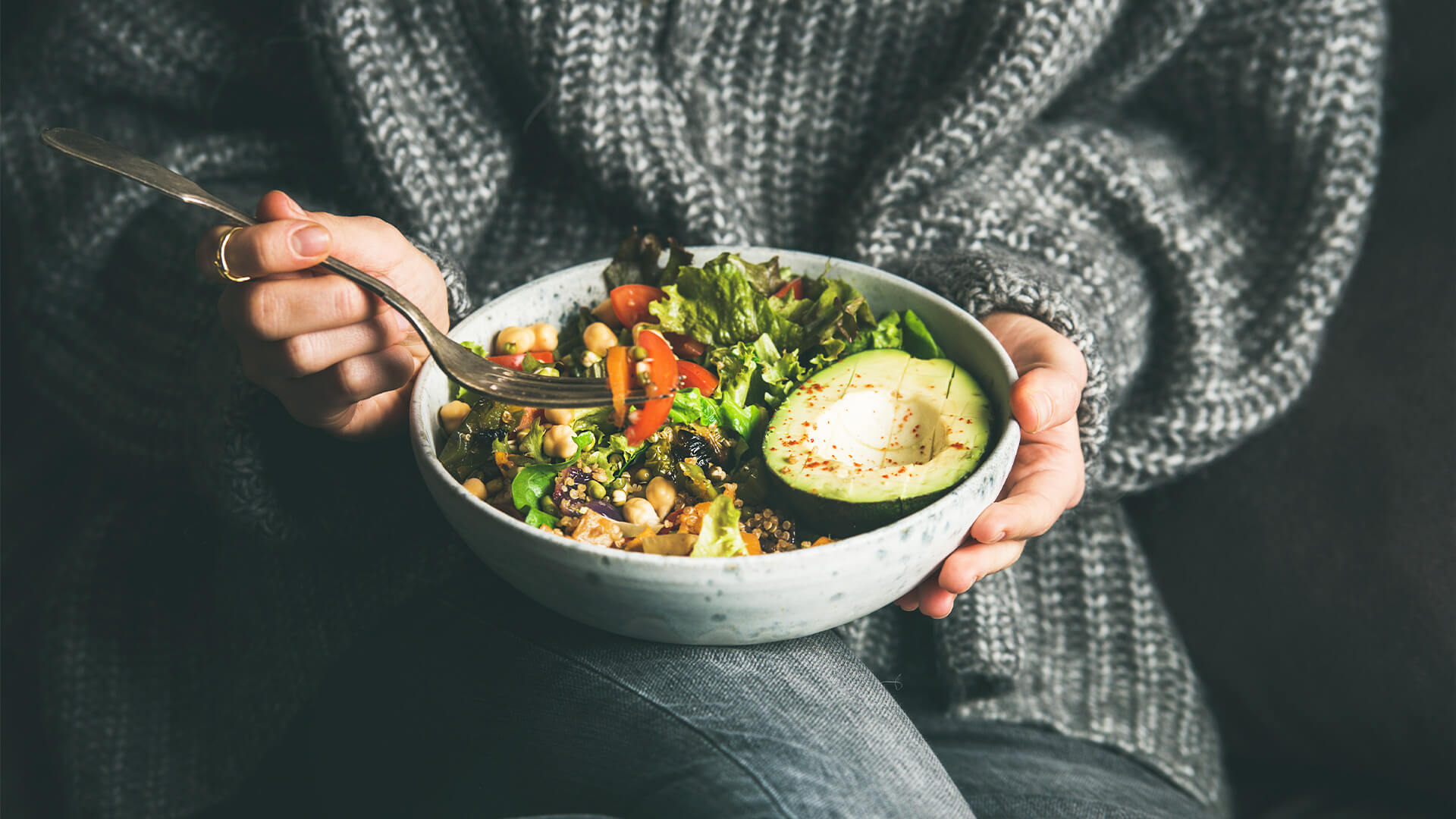
Consuming a plant-based diet is often praised as the healthiest way to eat. According to leading medical experts, there are several significant health benefits to becoming a vegetarian. These include reduced cancer risk, increased weight loss, and heart health support.
If you want to try a new plant-forward lifestyle this year, check out these top 5 health benefits of being a vegetarian.
What Is a Vegetarian Diet?
A vegetarian diet is a sustainable lifestyle that focuses on primarily eating food derived from plants. This plant-based eating pattern emphasizes consuming a rainbow of fruits and vegetables. It also includes a variety of nuts, seeds, whole grains, legumes such as peanuts beans, and healthy oils such as olive oil.
A vegetarian diet is different from a vegan diet since you’ll only need to cut out meat, not eggs or dairy products.
Since it’s hard to get certain crucial micronutrients in animal protein, you can maximize plant-based diet benefits by eating various protein-rich foods, including eggs, nuts, seeds, beans, tempeh, legumes, seitan, and tofu.
It’s always a good idea to discuss any dietary changes with your healthcare provider first to determine the best eating plan for you.
If you’ve decided to become a vegetarian, here are the top 5 health benefits associated with plant-forward eating.
1. Blast Belly Fat
It’s no secret that swapping packaged foods like crackers and cookies for green veggies and plant protein helps your body burn fat and regenerate your cells.
According to Medical News Today, healthcare practitioners recommend plant-forward eating as one of the top ways to kickstart your weight loss journey.
Nourishing your body with fresh plants is a great way to reduce obesity risk. People who consume plants also tend to eat less Whole grains and vegetables that are packed with antioxidants and fiber, but they rank low on the glycemic index. This helps you digest foods slower and feel fuller longer.
According to WebMD, vegetarian health benefits are reflected in BMI studies. The average BMI for vegetarians was 23.6, while non-vegetarians weighed in at an overweight category of 28.8. A group of adults who turned vegetarian also lost 9.25 pounds after one year.
2. Cut Your Cancer Risk
Another excellent health benefit of becoming a vegetarian is slashing your cancer risk by at least 10% for specific cancer types.
Studies from the American Institute for Cancer Research state that the best way to prevent cancer is to consume nutrients protecting and fighting against cancer. These include fiber, vitamins, minerals, antioxidants, and phytochemicals found in a plant-rich diet.
3. Rainbows Are Good for Your Heart
The good news is that you can reduce your risk for heart attack, a leading killer of Americans, by swapping out saturated animal fats for a veggie burger.
Load up on plants to cut your risk for developing cardiovascular disease by 16% and dying from a heart attack by 31%, according to the American Heart Association.
Just make sure to eat healthy oils like olive oil instead of trans-fats and load up on whole grains, fruits, and vegetables instead of sugary fruit, sodas, or refined carbs.
4. Kick Type 2 Diabetes to the Curb
There’s a significant link between what you eat and type 2 diabetes. Reducing weight through a vegetarian diet helps get off those extra pounds that create fatty tissue that’s insulin resistant.
The Mayo Clinic reports that the best way to avoid type 2 diabetes is to consume plants that reduce cholesterol and don’t contain saturated fats like animal foods.
5. Drop Your Blood Pressure
Is high blood pressure getting you down? Switching to a vegetarian diet can help you live longer. The National Library of Medicine found that vegetarians had lower blood pressure than non-vegetarians.
A vegetarian lifestyle produces measurable health benefits by reducing fatty deposits in the blood, controlling blood pressure, reducing cancer risks, lowering asthma symptoms, promoting weight loss, and protecting your heart for longer and healthier life.



















